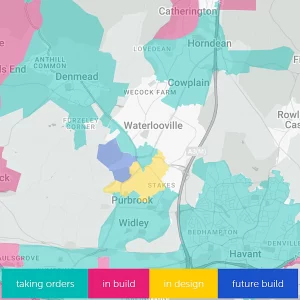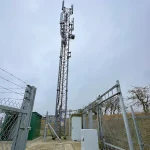Sponsored Links
Sky Shuns Public Funding for Next Gen Broadband Services
Posted: 20th Mar, 2009 By: MarkJ
BSkyB ( Sky Broadband ) has issued a public response to Lord Carter's interim Digital Britain report, which amongst other things warns against "public intervention in the [NEXT GENERATION BROADBAND] market" and calls on Virgin Media to open up its cable network to help spur competition with BT's future fibre optic services. The provider also warned against adopting net neutrality friendly rules, which they claimed "[RISKED] significant unforeseen distortions".
Sky also came out firmly against the idea of a "broadband tax" on consumers (higher prices), which would be used to help fund next gen broadband services and or a Rights Agency for dealing with illegal downloads and content distribution. Such a tax, they claim, would "undermine the wider objective the Government is seeking to achieve – driving further broadband take-up".
On the matter of tackling illegal file sharing (P2P) downloads Sky called on all UK ISPs and Mobile Broadband operators to be involved, not just the largest ones because that might just cause abusers to move their activities on to the smaller service providers instead.
Unsurprisingly though they came out in opposition to any notion of a punitive sanction (disconnection, service restrictions etc.), stating that it was "unrealistic to expect that punitive sanctions can be imposed on millions of broadband customers, and that ISPs would do so without proof of illegal activity."
Sky also supported the use of wireless technologies ( Wi-Fi , WiMAX and Mobile Broadband ) as a method for plugging the 2Mbps universal service obligation (USO) gap, adding that it would not be "economically efficient" to extend existing copper based networks. Typically most of their responses were largely what you’d expect to find from a big ISP looking to avoid high costs and a more difficult operating environment. It also hints at difficulties ahead for reaching an industry wide consensus on the much touted Digital Rights Agency (DRA).
Premature intervention risks crowding out private investment
While industry is in this experimentation phase, public intervention in the market – or even the possibility of it – could chill private investment.
While commercial companies are testing the economics of NGA, there is a real danger that the deployment of public money could distort incentives and be wasted funding investments that would otherwise shortly be made by the private sector.
Until the Government has greater clarity over the likely extent of market provision it is difficult to see how large-scale public intervention could be justified.
While industry is in this experimentation phase, public intervention in the market – or even the possibility of it – could chill private investment.
While commercial companies are testing the economics of NGA, there is a real danger that the deployment of public money could distort incentives and be wasted funding investments that would otherwise shortly be made by the private sector.
Until the Government has greater clarity over the likely extent of market provision it is difficult to see how large-scale public intervention could be justified.
The real obstacle to widespread NGA take-up may be a lack of access to existing telecoms networks
There already is a network capable of delivering high speed broadband which covers half the country - the cable network. If there is concern over the lack of retail competition leading to slow take-up, then introducing competition on that network is a solution that should be explored.
While BT’s network and Sky’s satellite platform are open to other service providers on fair, reasonable and non-discriminatory terms, it is increasingly anomalous that Virgin Media’s cable network remains closed. In particular, access to cable ducts, as proposed by Ofcom for BT’s future fibre investment, would offer the opportunity for competition between end-to-end infrastructure with all of the benefits in terms of innovation and differentiation that this type of competition typically brings.
There already is a network capable of delivering high speed broadband which covers half the country - the cable network. If there is concern over the lack of retail competition leading to slow take-up, then introducing competition on that network is a solution that should be explored.
While BT’s network and Sky’s satellite platform are open to other service providers on fair, reasonable and non-discriminatory terms, it is increasingly anomalous that Virgin Media’s cable network remains closed. In particular, access to cable ducts, as proposed by Ofcom for BT’s future fibre investment, would offer the opportunity for competition between end-to-end infrastructure with all of the benefits in terms of innovation and differentiation that this type of competition typically brings.
We agree that operators should retain the flexibility to manage their own network traffic
Online business models are still at a relatively early stage of development. The introduction of any regulation that limits the flexibility of ISPs to manage their own network traffic (such as so called ‘net neutrality’ rules) risks significant unforeseen distortions and the potential foreclosure of innovative, risk-sharing business models.
Online business models are still at a relatively early stage of development. The introduction of any regulation that limits the flexibility of ISPs to manage their own network traffic (such as so called ‘net neutrality’ rules) risks significant unforeseen distortions and the potential foreclosure of innovative, risk-sharing business models.
Sky also came out firmly against the idea of a "broadband tax" on consumers (higher prices), which would be used to help fund next gen broadband services and or a Rights Agency for dealing with illegal downloads and content distribution. Such a tax, they claim, would "undermine the wider objective the Government is seeking to achieve – driving further broadband take-up".
On the matter of tackling illegal file sharing (P2P) downloads Sky called on all UK ISPs and Mobile Broadband operators to be involved, not just the largest ones because that might just cause abusers to move their activities on to the smaller service providers instead.
Unsurprisingly though they came out in opposition to any notion of a punitive sanction (disconnection, service restrictions etc.), stating that it was "unrealistic to expect that punitive sanctions can be imposed on millions of broadband customers, and that ISPs would do so without proof of illegal activity."
Sky said: "We believe that a considerable deterrent impact will be achieved via warning letters backed up by the credible threat of legal sanction against the most serious repeat infringers by the owners of the rights being infringed.
To be effective, the communication of the warning and its consequences must be as clear and efficiently delivered as possible. It must also be supported by wider education messages about the value of copyright and the opportunity for consumers to purchase a wide variety of attractively priced legal content."
To be effective, the communication of the warning and its consequences must be as clear and efficiently delivered as possible. It must also be supported by wider education messages about the value of copyright and the opportunity for consumers to purchase a wide variety of attractively priced legal content."
Sky also supported the use of wireless technologies ( Wi-Fi , WiMAX and Mobile Broadband ) as a method for plugging the 2Mbps universal service obligation (USO) gap, adding that it would not be "economically efficient" to extend existing copper based networks. Typically most of their responses were largely what you’d expect to find from a big ISP looking to avoid high costs and a more difficult operating environment. It also hints at difficulties ahead for reaching an industry wide consensus on the much touted Digital Rights Agency (DRA).
Search ISP News
Search ISP Listings
Search ISP Reviews
Latest UK ISP News








Cheap BIG ISPs for 100Mbps+
150,000+ Customers | View More ISPs
Cheapest ISPs for 100Mbps+
Modest Availability | View More ISPs
Latest UK ISP News
Helpful ISP Guides and Tips
Sponsored Links
The Top 15 Category Tags
- FTTP (6798)
- BT (3881)
- Politics (3074)
- Business (2766)
- Openreach (2663)
- Building Digital UK (2512)
- Mobile Broadband (2475)
- FTTC (2142)
- Statistics (2127)
- 4G (2092)
- Virgin Media (2024)
- Ofcom Regulation (1779)
- 5G (1732)
- Fibre Optic (1604)
- Wireless Internet (1595)
Sponsored
Copyright © 1999 to Present - ISPreview.co.uk - All Rights Reserved - Terms , Privacy and Cookie Policy , Links , Website Rules































